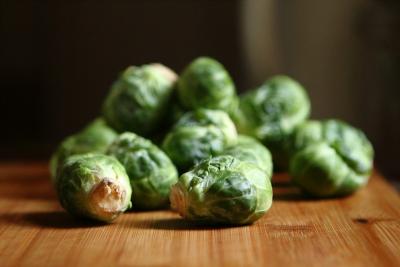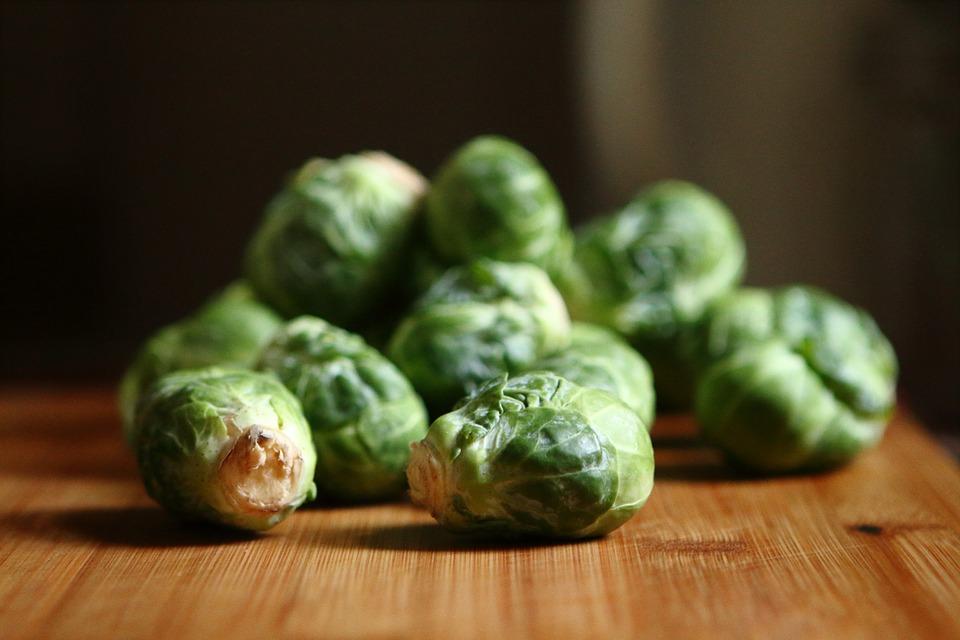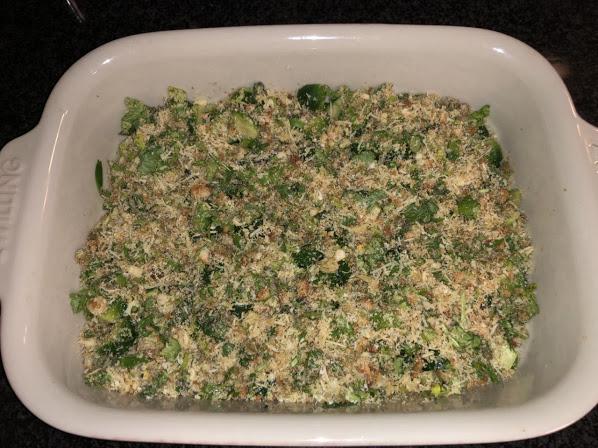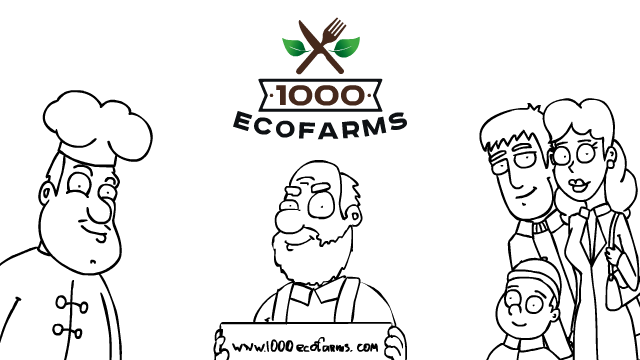Brussels sprouts are not baby cabbages, but they are part of the same family. Brussels sprouts grow as buds along the length of a thick, fibrous stalk.
From the name we know that this kind of little cabbages appeared in Belgium. Later, it was widely cultivated in nearest European countries. The person who gave a Brussels sprout its name was Swedish botanist Carl Linnaeus (1707-1778). This name keeps a memory of Brussels gardener’s hard work. Nowadays it is cultivated mainly in Western Europe, USA and Canada.
From the name we know that this kind of little cabbages appeared in Belgium. Later, it was widely cultivated in nearest European countries. The person who gave a Brussels sprout its name was Swedish botanist Carl Linnaeus (1707-1778). This name keeps a memory of Brussels gardener’s hard work. Nowadays it is cultivated mainly in Western Europe, USA and Canada.
Since Brussels sprouts are rich in vitamin K, which plays an important role in improving calcium absorption, it helps to improve strength and prevent loss of bone mineral density. In addition, other minerals, such as phosphorus, copper, manganese and iron, which are also found in this type of cabbage, help to strengthen the bones and prevent diseases such as osteoporosis.
Volatile compounds present in Brussels sprouts have a positive effect on the level of hormones in the body, contribute to the health of the thyroid gland and its proper functioning.
Vitamin C, one of the main components of Brussels sprout, plays an important role in maintaining immunity, stimulating the production of white blood cells in the body. It acts as an antioxidant that helps reduce the development of chronic diseases and oxidative stress.
Cruciferous vegetables are known for their high fiber content. Fibers help speed up the process of digestion, contribute to an increase in stool mass and its easy removal.
Dietary fiber also has a positive and effective effect on weight loss. Eating Brussels sprouts, and your efforts to lose weight will not be in vain: the fiber releases hormone leptin, which reduces cravings for frequent snacks. It also helps relieve cramps and reduces bloating.
Brussels sprouts contain large amounts of potassium, the most important mineral necessary for the proper functioning of the whole human body. Potassium is a vasodilator, that is, it helps reduce the level of pressure and tension in blood vessels. This takes the load off the cardiovascular system, thus reducing the risk of developing heart disease: stroke, coronary disease and atherosclerosis.
Volatile compounds present in Brussels sprouts have a positive effect on the level of hormones in the body, contribute to the health of the thyroid gland and its proper functioning.
Vitamin C, one of the main components of Brussels sprout, plays an important role in maintaining immunity, stimulating the production of white blood cells in the body. It acts as an antioxidant that helps reduce the development of chronic diseases and oxidative stress.
Cruciferous vegetables are known for their high fiber content. Fibers help speed up the process of digestion, contribute to an increase in stool mass and its easy removal.
Dietary fiber also has a positive and effective effect on weight loss. Eating Brussels sprouts, and your efforts to lose weight will not be in vain: the fiber releases hormone leptin, which reduces cravings for frequent snacks. It also helps relieve cramps and reduces bloating.
Brussels sprouts contain large amounts of potassium, the most important mineral necessary for the proper functioning of the whole human body. Potassium is a vasodilator, that is, it helps reduce the level of pressure and tension in blood vessels. This takes the load off the cardiovascular system, thus reducing the risk of developing heart disease: stroke, coronary disease and atherosclerosis.
The benefits of this wonderful vegetable also include improving vision and preventing age-related eye diseases, improving brain function, reducing cholesterol, maintaining the proper functioning of the nervous system, maintaining skin beauty and health, and improving blood circulation.
Despite all the benefits, many people dislike the taste of Brussels sprouts. However, it can be very pleasant if it is properly prepared, the main thing is not to digest it. We offer you several recipes that will make you ardent fans of this vegetable:
Baked cabbage with cheese and breadcrumbs
Cook the Brussels sprouts in salted water for 5 minutes. Put it on a baking sheet, sprinkle with breadcrumbs and a small amount of grated hard cheese, like Parmesan. Stir, add seasoning, salt and pepper by taste, put it in the oven preheated to 200 degrees for 15 minutes. Remove the vegetables from the oven, sprinkle immediately with grated cheese and serve.
Fresh Brussels Sprouts Salad
Cut 5-6 cabbage coaches, mix them with half a glass of chopped roasted walnuts, 3 tsp. of olive oil, juice of a half of a lemon, ½ tsp. of salt and ½ tsp of ground pepper.
Stay healthy and bon appetit!
Despite all the benefits, many people dislike the taste of Brussels sprouts. However, it can be very pleasant if it is properly prepared, the main thing is not to digest it. We offer you several recipes that will make you ardent fans of this vegetable:
Baked cabbage with cheese and breadcrumbs
Cook the Brussels sprouts in salted water for 5 minutes. Put it on a baking sheet, sprinkle with breadcrumbs and a small amount of grated hard cheese, like Parmesan. Stir, add seasoning, salt and pepper by taste, put it in the oven preheated to 200 degrees for 15 minutes. Remove the vegetables from the oven, sprinkle immediately with grated cheese and serve.
Fresh Brussels Sprouts Salad
Cut 5-6 cabbage coaches, mix them with half a glass of chopped roasted walnuts, 3 tsp. of olive oil, juice of a half of a lemon, ½ tsp. of salt and ½ tsp of ground pepper.
Stay healthy and bon appetit!







